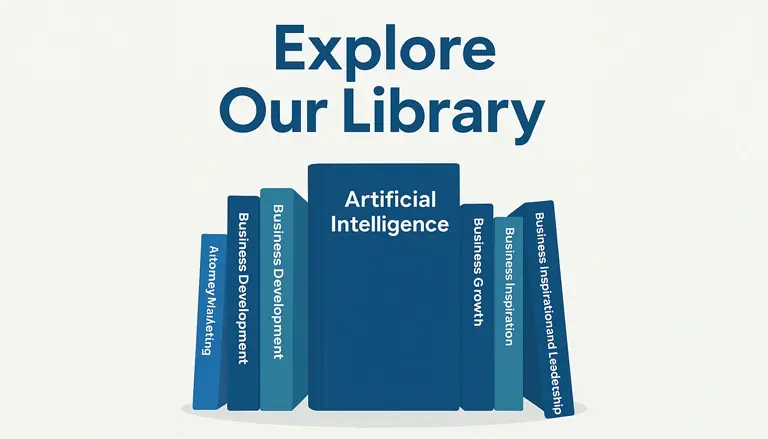

Boosting Customer Engagement with Multi-Channel Marketing
Posted September 5, 2024 by Kevin Chern
Marketing isn’t a one-size-fits-all game, especially when your customers are spread across different platforms, each with its own preferences. Some might check their inbox daily, others live on Instagram, and a few might just spot your ad while scrolling through TikTok. So, how do you engage them all? The answer: multi-channel marketing. By reaching out to customers through a variety of platforms, you create more opportunities to connect and, more importantly, keep them engaged with your brand.
What is Multi-Channel Marketing?
Simply put, multi-channel marketing is the practice of interacting with customers using a combination of communication platforms. These platforms can include email, social media, SMS, in-app messages, paid ads, and even offline channels like direct mail or in-store interactions. The goal is to create a seamless experience across all channels, allowing your brand to stay top-of-mind and accessible no matter where your customers are.
With multi-channel marketing, you’re not just hoping that one platform gets the job done. Instead, you’re covering all your bases to ensure your message reaches your audience wherever they are.
Why Multi-Channel Marketing Works
Let’s face it: customers don’t live in just one channel. They’re scrolling through Instagram while checking email, glancing at SMS messages, and even popping by your website. A multi-channel marketing strategy ensures that you’re connecting with customers on their preferred platforms, at the right time, with the right message.
Here are just a few reasons why multi-channel marketing is a must for boosting customer engagement:
1. Expanded Reach
When you use multiple channels, you’re more likely to capture attention in a crowded marketplace. One person may prefer opening emails, while another may engage more with your content on Facebook or Instagram. By being present on various platforms, you’re increasing the likelihood that your message will reach its target.
2. Improved Customer Experience
Consistency is key. Multi-channel marketing allows you to create a unified experience for your customers, whether they’re browsing your website, scrolling through social media, or receiving a text message. When customers can interact with your brand seamlessly across platforms, it builds trust and encourages engagement.
3. Better Data and Insights
The beauty of multi-channel marketing is that you gather data from all your touchpoints. This means better insights into customer behavior, which you can use to refine your strategy. Are customers more responsive to emails, or do they engage more with social media ads? The data will tell you, helping you optimize your future campaigns.
4. Increased Engagement
More touchpoints mean more opportunities to engage. Whether it’s through personalized email offers, targeted social media ads, or SMS alerts, multi-channel marketing provides multiple opportunities to capture attention and keep your audience engaged.
Strategies for Effective Multi-Channel Marketing
Now that you understand the importance of multi-channel marketing, let’s explore how you can use it to boost customer engagement. Here are a few strategies to get started:
1. Create a Consistent Brand Message
No matter how many channels you’re using, consistency is crucial. Your brand’s voice, tone, and messaging should remain cohesive across all platforms. Whether a customer is reading your email or engaging with your brand on social media, the experience should feel unified. That means using the same visuals, language, and tone of voice across all channels.
2. Tailor Your Content for Each Channel
While consistency is important, don’t make the mistake of simply duplicating the same content across platforms. Each channel has its own strengths and audience behavior. Tailor your content to fit the specific platform you’re using. For example, what works on Instagram might not be as effective in an email newsletter. Personalizing content for each platform while maintaining a consistent message is key to successful multi-channel marketing.
3. Leverage Customer Data for Personalization
One of the biggest advantages of multi-channel marketing is the wealth of data it provides. Use this data to create personalized marketing campaigns. By segmenting your audience based on their behavior across different channels, you can send them targeted messages that resonate. For instance, if a customer frequently interacts with your social media posts but rarely opens emails, you might shift more of your efforts toward paid social ads for that segment.
4. Integrate Online and Offline Channels
Multi-channel marketing doesn’t stop with digital. If you have a physical store or event presence, integrate those touchpoints into your strategy. In-store promotions, printed offers, and even in-person consultations can be reinforced with digital follow-ups, ensuring that your customers are constantly reminded of your brand—whether online or off.
5. Automate Where Possible
Automation is a lifesaver when managing multiple channels. Use marketing automation tools to send personalized messages, schedule social posts, and trigger workflows based on customer behavior. Automating your multi-channel strategy allows you to maintain constant communication without overwhelming your team.
Case Study: Multi-Channel Marketing in Action
Let’s say you run an e-commerce brand selling eco-friendly products. With a multi-channel marketing strategy, you could:
- Send personalized emails with product recommendations based on browsing history.
- Post eco-friendly tips and promotions on Instagram and Facebook to engage socially-conscious consumers.
- Launch targeted Google Ads that retarget users who visited your website but didn’t make a purchase.
- Use SMS notifications to alert customers about special sales or when their favorite items are back in stock.
- Offer in-store promotions or in-app incentives to drive repeat purchases.
By using a combination of these touchpoints, you create a cohesive experience that increases customer engagement, keeps your brand top-of-mind, and ultimately boosts conversions.
The Future of Multi-Channel Marketing
As technology continues to evolve, multi-channel marketing will only become more essential for businesses that want to stay competitive. The key to success will be using the data and insights you gain from each channel to continually optimize your strategy. By staying flexible, adaptable, and customer-centric, you can ensure your brand remains at the forefront of your customers’ minds.
Boosting customer engagement requires more than just being present on multiple platforms it’s about showing up in the right places with the right message at the right time. Multi-channel marketing allows businesses to meet customers wherever they are, providing consistent, engaging experiences that build trust, drive action, and foster loyalty.
Tags:




